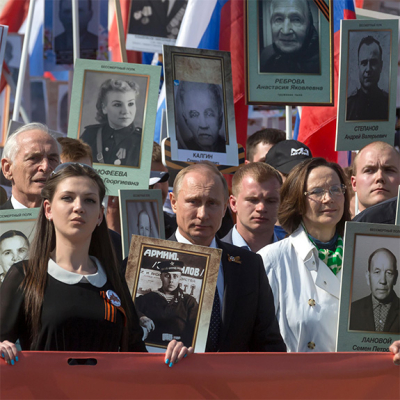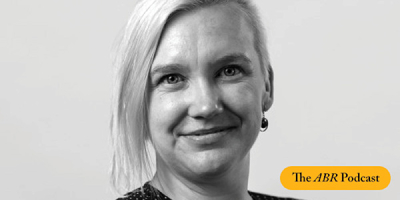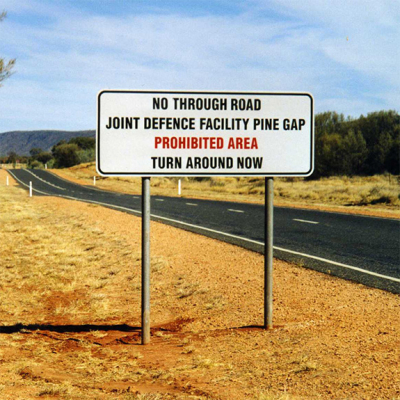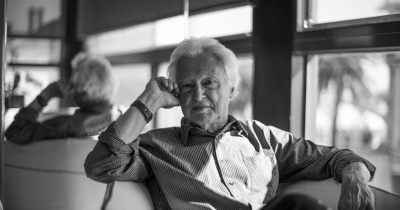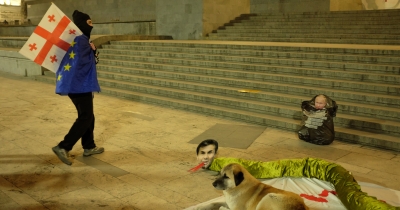Commentary
Remember when the Russians ‘liberated’ Berlin in 1945, ending World War II? The iconic image of a Soviet soldier raising the Soviet flag over the Reichstag became a staple of popular culture as well as historical memory. It was the culminating point of the wartime Alliance of the ‘Big Three’, with Winston Churchill, Franklin Roosevelt, and ‘Uncle Joe’ Stalin hanging out together like old friends and deciding the fate of the world.
... (read more)This week on the ABR Podcast, we feature Rebecca Strating’s commentary ‘“Rejecting the system it created”: How Trump’s America is reshaping Australia’s regional relations’. While the second Trump administration presents a challenge for Australian policy makers, it also provides an opportunity for Australia, explains Strating, ‘to develop greater self-reliance in foreign policy and deepen relationships across Asia’.
... (read more)The first six months of the second Trump administration have left American allies worldwide, including Australia, in a state of shock and sullen resignation. Shock at the resumption of Trump’s global trade and tariff war, following threats to Canada, Greenland and Mexico, not to mention the harm being done to American institutions and soft power; resignation that US protectionism and the rising demands of Washington on allies to pay more for their own defence are here to stay.
... (read more)Some readers will know me as the author of Romulus My Father (1998). Romulus is not a book of philosophy, but it was obviously written by a philosopher profoundly affected by painful events in his childhood and the influence on him of his father and his father’s dear friend Pantelimon Hora, who helped raise him. Many people who have read the book said that it is obvious why I became a philosopher.
... (read more)For Australia, a nation that has long balanced its economic ties to Asia with its security alliance with the United States, the second Trump administration represents an unprecedented challenge to its foreign policy. The return of Donald Trump to the White House has ushered in a new era of economic nationalism that threatens to reshape the Asian security landscape. For the newly re-elected Albanese Labor government, this presents plenty of risks. But its decisive mandate also provides an opportunity for Australia to develop greater self-reliance in foreign policy and deepen relationships across Asia.
... (read more)Last month’s remarkable federal election result has produced a metric plethora of articles explaining how it was achieved and what it means for the government, for the electorate, and for elections to come.
... (read more)Winners 1978
First prize –
$3000, including $500 to the publisher.
Monkey Grip,
by Helen Garner, McPhee Gribble.
Second prize –
$2000, including $250 to the publisher.
Living Black,
by Kein Gilbert, Penguin Australia.
Highly Commended:
Australian Primitive Painters,
by Geoffrey Lehmann,< ...
There are moments in political history when the electoral contest is real, visceral, and there are other times when the governing party is so visibly exhausted and the context so apparently unfavourable that the prudent move is not to try too hard to win. Such was the case at the last British general election, held in July 2024. After four consecutive victories, five changes of prime minister, and a litany of disasters, scandals, and failures, the governing Conservative regime led by the likeable but hapless Rishi Sunak finally keeled over and gave way to Keir Starmer’s Labour Party. Starmer won a majority of 174 seats, with a relatively modest thirty-four per cent of the popular vote.
... (read more)When I think of Peter Rose’s legacy and his immense contributions to Australian letters as Editor of Australian Book Review, there are manifold achievements I might highlight. Peter has wholly transformed the magazine’s ambitions and horizons over his tenure, elevating ABR into an indispensable, world-class publication offering outstanding commentary, criticism, creative work, and coverage of the performing arts. He has shaped the national conversation in infinite ways, offering our best minds scope to debate the pressing issues of our times in complex, nuanced exchanges that are vanishingly rare elsewhere. He has served as a distinguished and tireless public advocate for the value of criticism, the arts, and the humanities, and has done so much to advocate for writers and writing, building prizes, fellowships, and other initiatives that continue to create vital opportunities and recognition for writers today. More quietly but no less diligently, he has also worked tirelessly to protect and preserve ABR as a jewel of Australian literature for generations to come.
... (read more)Night after night, the protests swirl into one. Slogans blast through the distorted echo of plastic megaphones. Whistles are blown at such a piercing volume that my ears ring when sleep eventually comes, usually around 7 am. Blockades close the city’s main arteries and highways. Police in riot gear are deployed to each of the three main roads that lead in and out of the city. Rustaveli Avenue, the main street in Tbilisi, Georgia’s capital and largest city, has once again become the nation’s political fault line.
... (read more)

